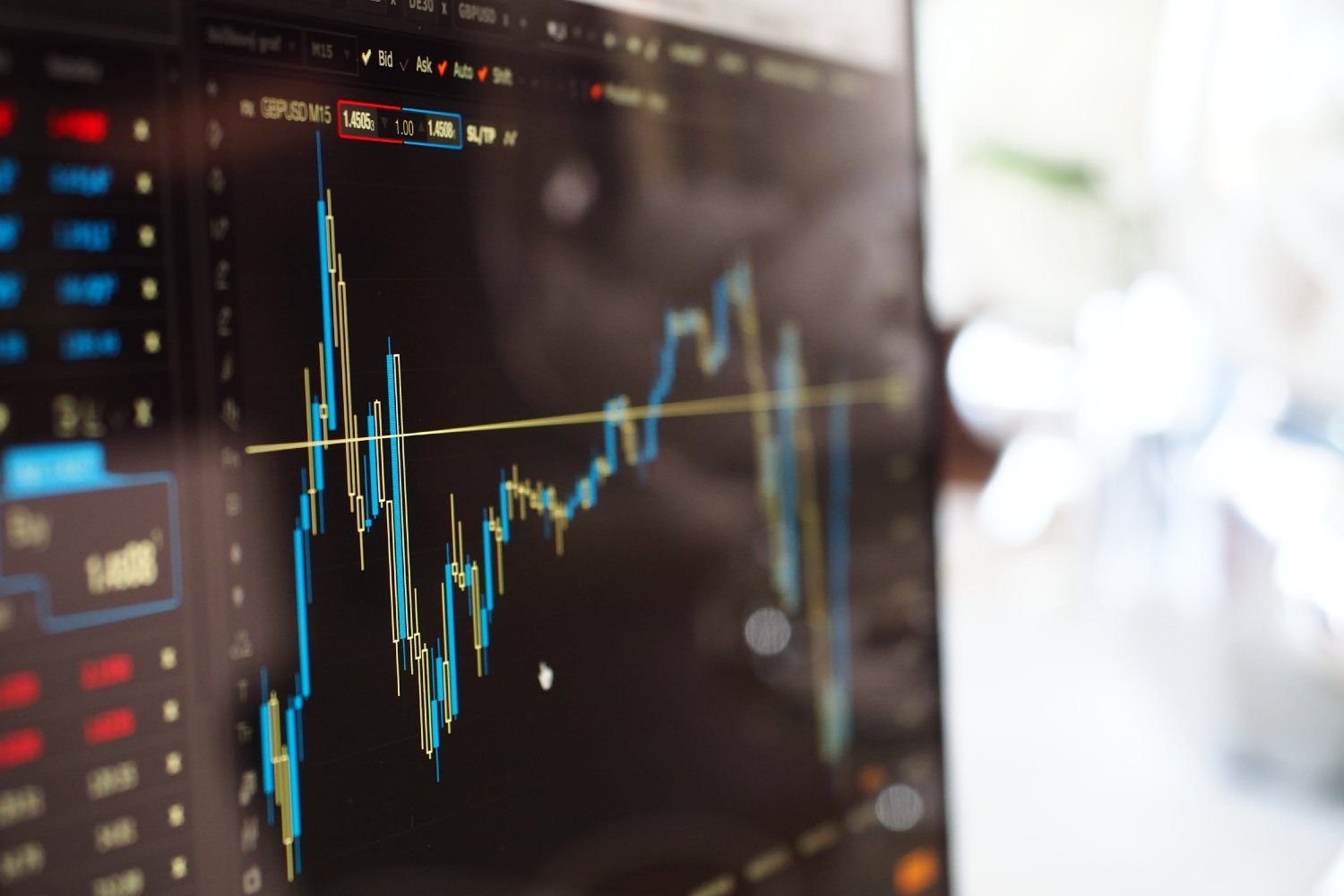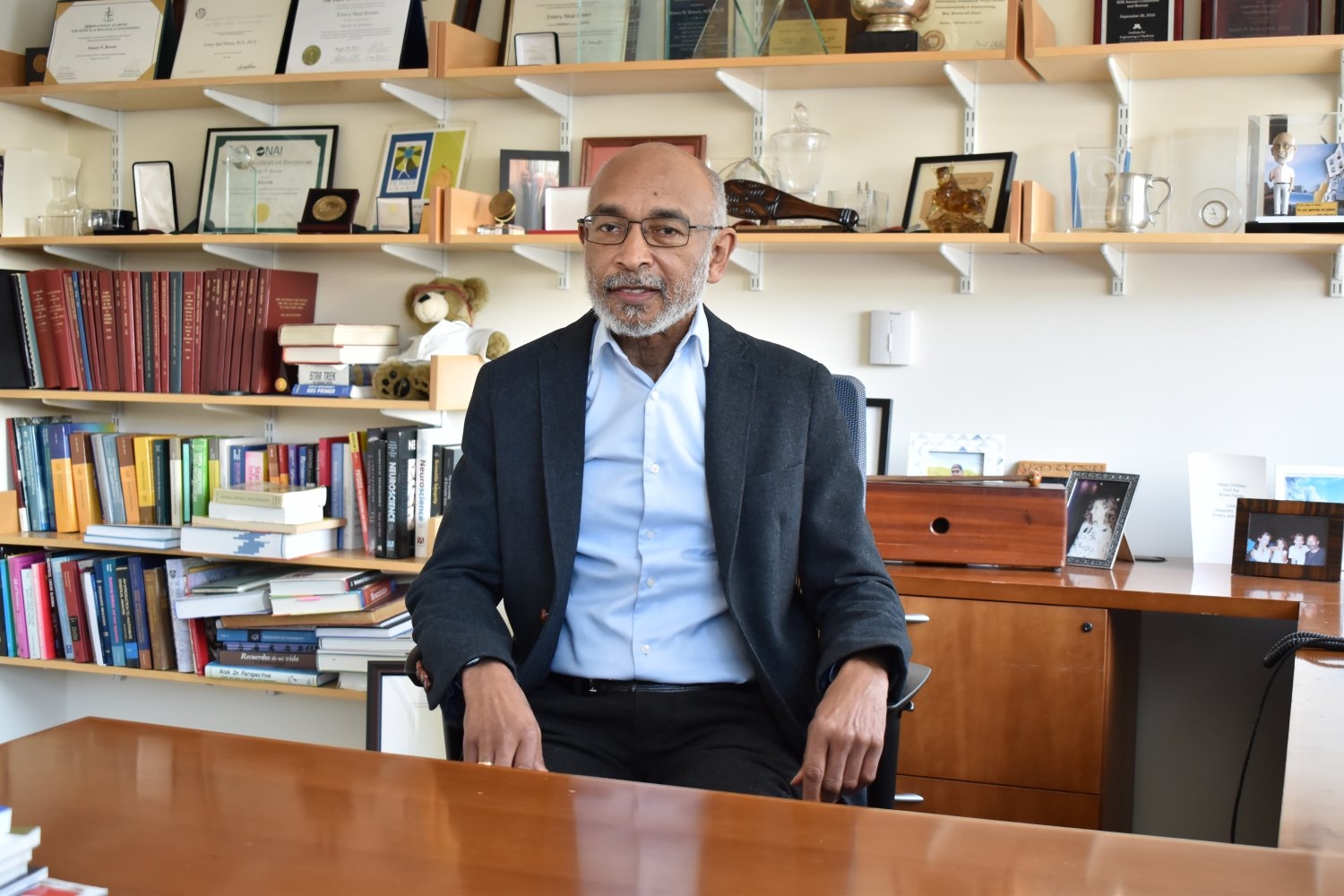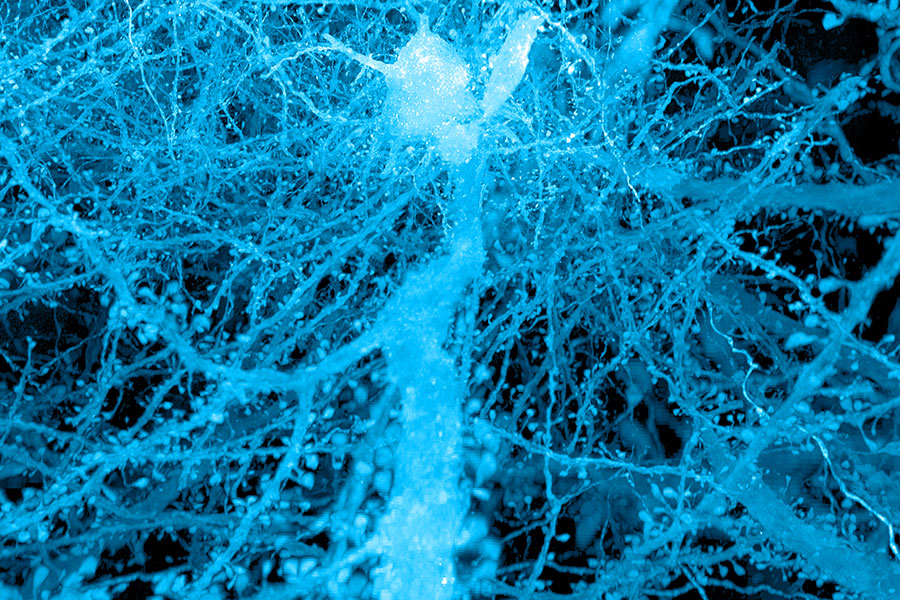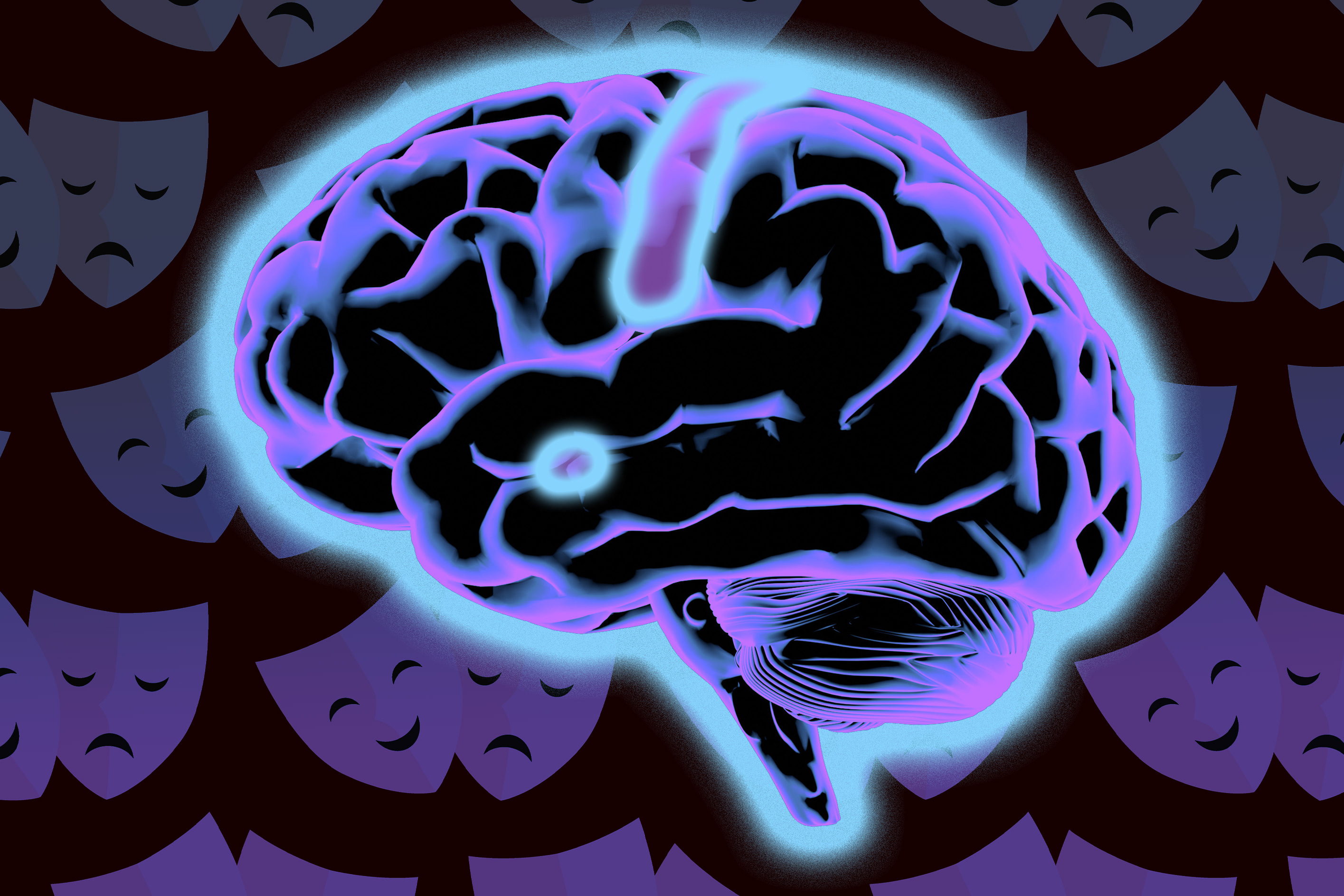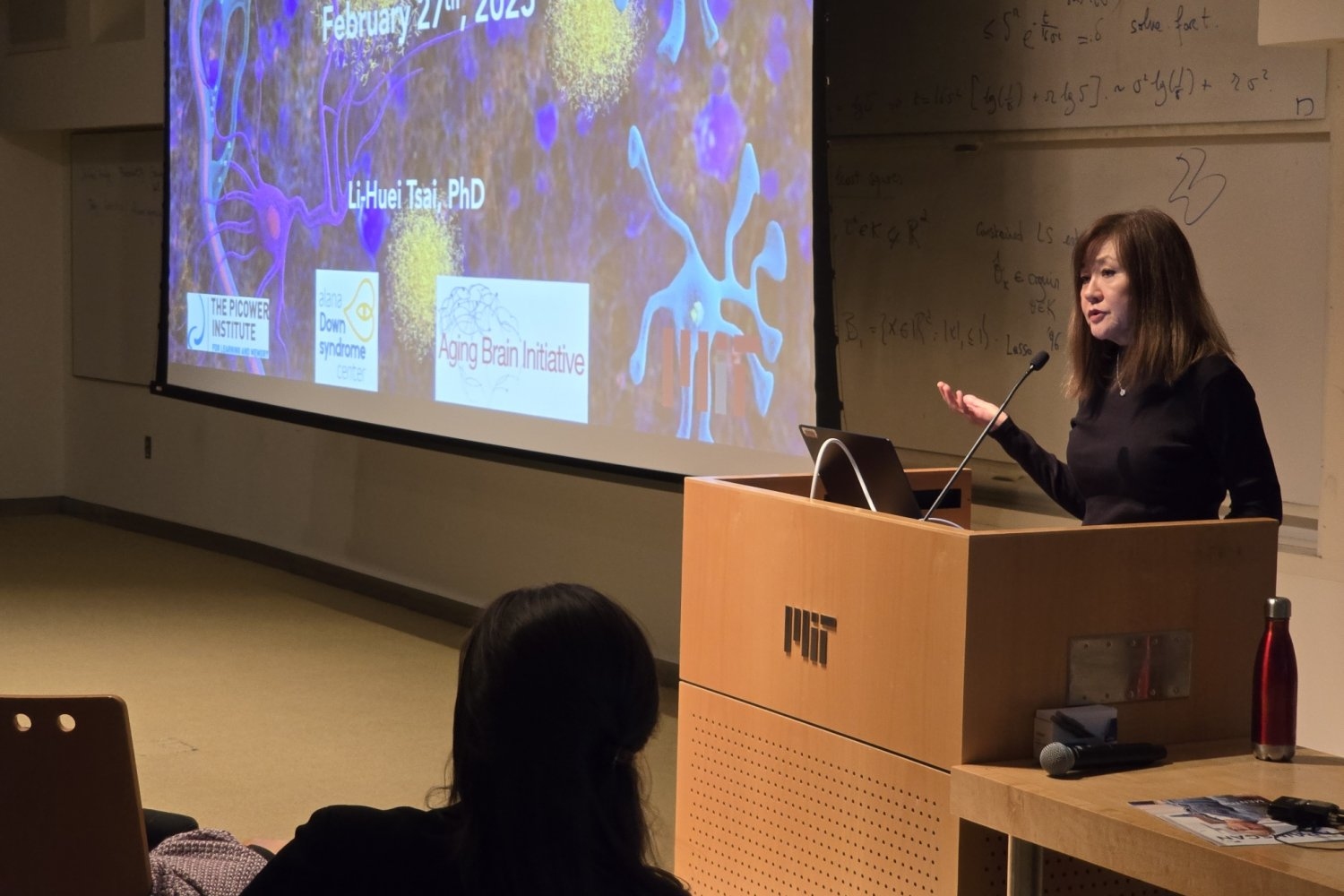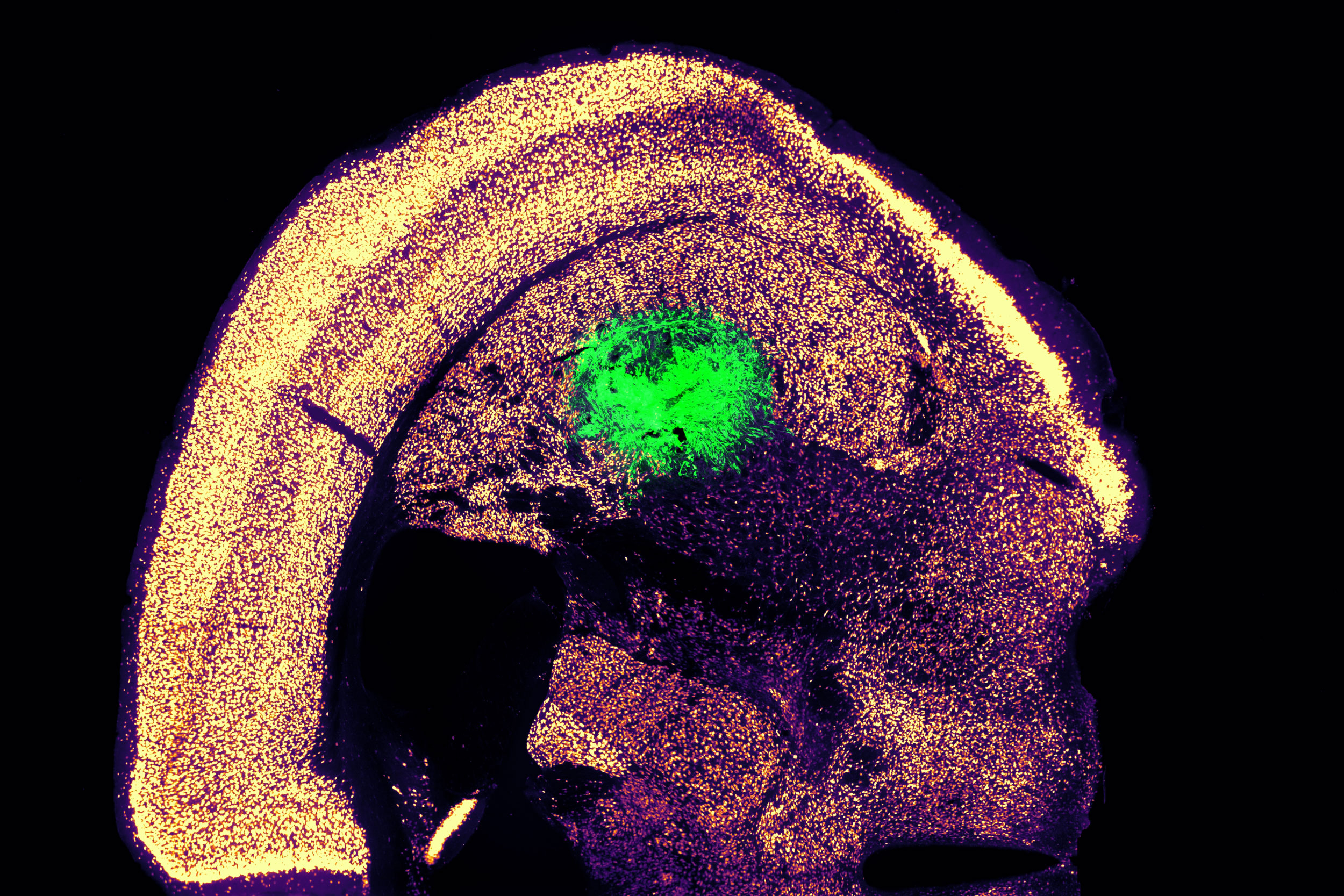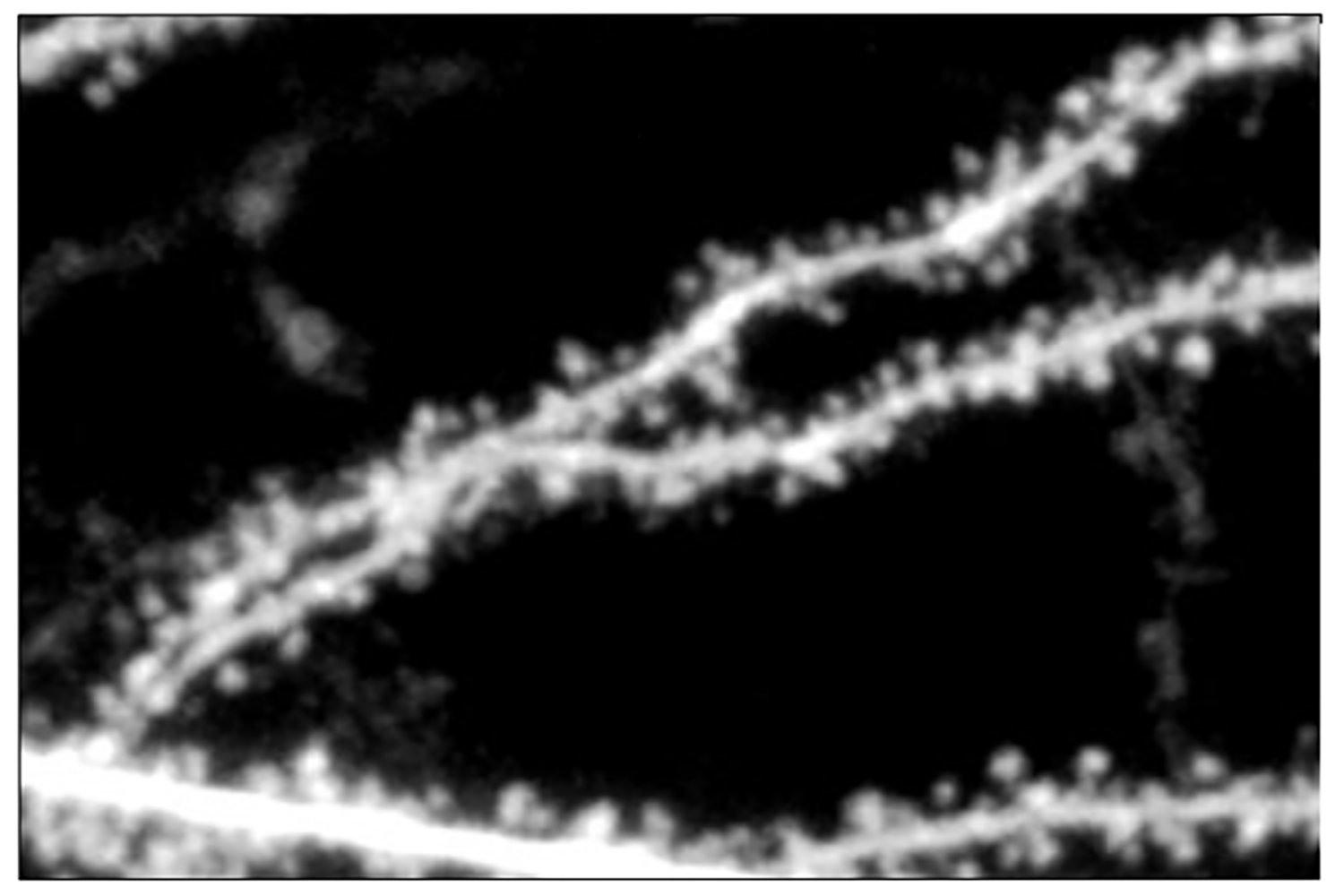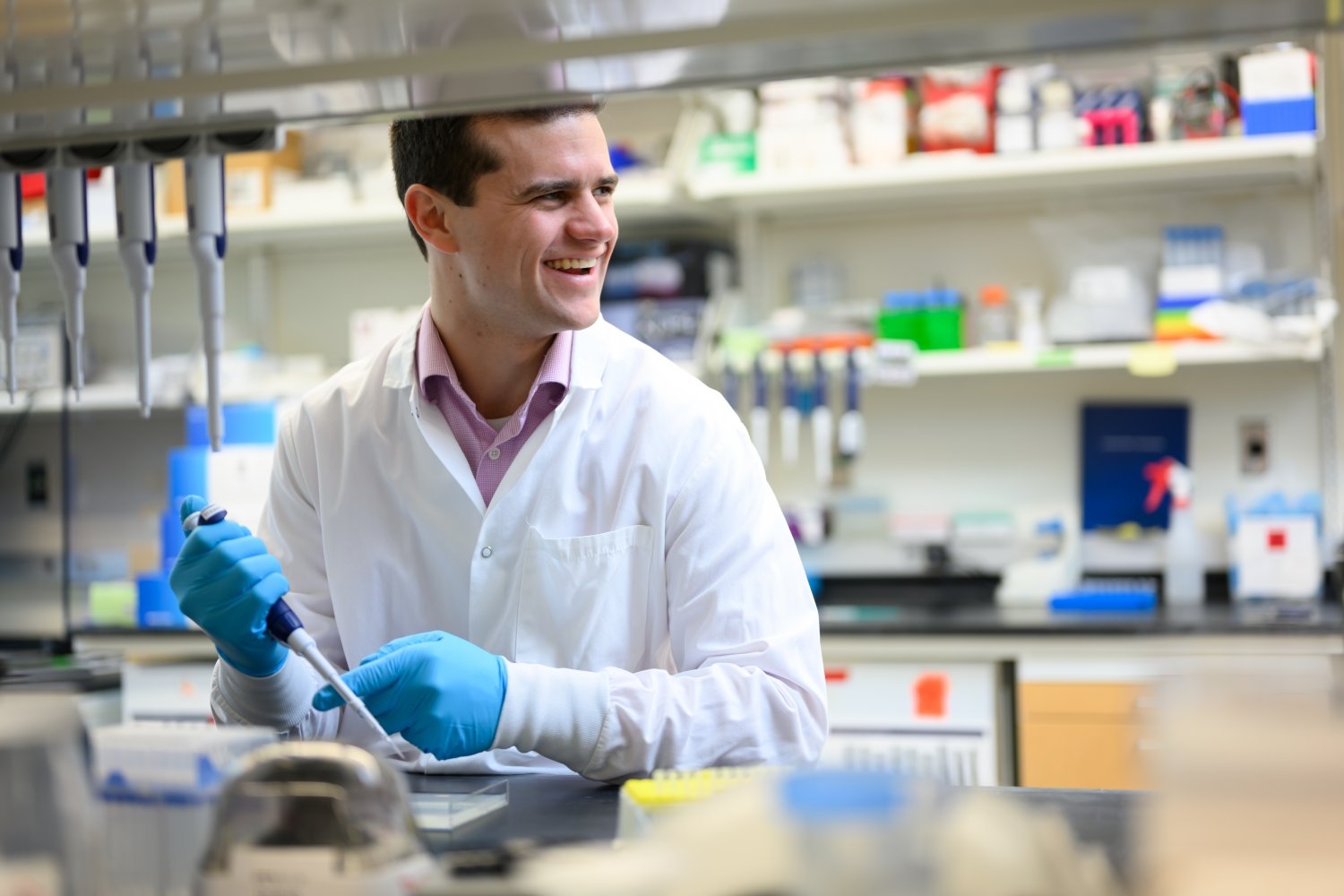In kids, EEG monitoring of consciousness safely reduces anesthetic use
Clinical trial finds several outcomes improved for young children when an anesthesiologist observed their brain waves to guide dosing of sevoflurane during surgery.
April 29, 2025 • ~6 min
Response to infection highlights the nervous system’s surprising degrees of flexibility
Upon infection, the C. elegans worm reshuffles the roles of brain cells and flips the functions of some of the chemicals it uses to regulate behavior.
April 29, 2025 • ~8 min
A brief history of expansion microscopy
Since an MIT team introduced expansion microscopy in 2015, the technique has powered the science behind kidney disease, plant seeds, the microbiome, Alzheimer’s, viruses, and more.
April 23, 2025 • ~13 min
Evidence that 40Hz gamma stimulation promotes brain health is expanding
A decade of studies provide a growing evidence base that increasing the power of the brain’s gamma rhythms could help fight Alzheimer’s, and perhaps other neurological diseases.
March 14, 2025 • ~6 min
Study suggests new molecular strategy for treating fragile X syndrome
Enhancing activity of a specific component of neurons’ “NMDA” receptors normalized protein synthesis, neural activity, and seizure susceptibility in the hippocampus of fragile X lab mice.
March 4, 2025 • ~7 min
/
40

